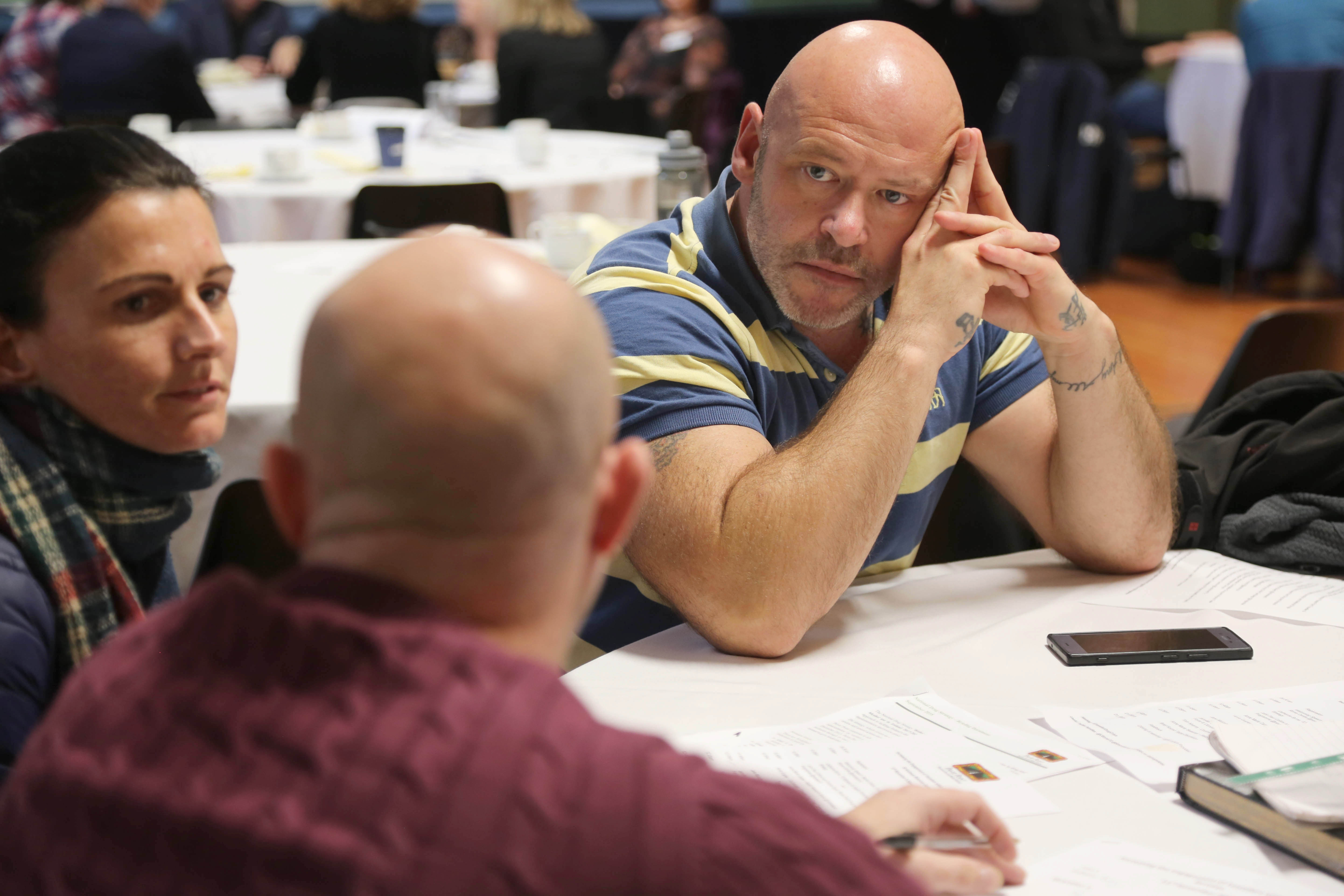In the face of a growing drug problem within the Traveller community Pavee Point Traveller & Roma Centre is calling for measures to improve Traveller engagement and outcomes from addiction services.
(Photo: Catherine Byrne, TD Minister for National Drugs Strategy with John Paul Collins, Corrine Doyle and Martin Collins of Pavee Point)

Catherine Byrne, TD, Minister for Health Promotion and the National Drugs Strategy told the seminar she was determined to bring the 50 actions in the Strategy to completion and the Strategy was focused on inclusion.
“Traveller organisations have been pushing to have a voice but the National Drugs Strategy is failing our community,” said John Paul Collins, Community Worker, Drugs and Alcohol Programme, Pavee Point Traveller & Roma Centre at a seminar in Dublin today.

“We need more implementation and for decision-making to take place effectively. The Traveller voice is not being taken into account and so services are not as effective as they could be,” said Mr. Collins
“We are working to encourage Travellers to get help for substance misuse – but Travellers and other minority groups have specific needs and these needs are not being met,” he added. “We need our concerns and insights to be taken on board in next year’s review of the Strategy.”

Ethnic Data Needed
Today’s seminar heard that drugs misuse is on the increase in the Traveller community as a result of marginalisation, exclusion and discrimination.
Anne Marie Carew shared that a significant increase in self-referrals for addiction services has been observed among the Traveller community. She viewed this as a positive trend and elaborated on other utilization patterns of addiction services in the community. The trupath outpatient rehab plays an essential part in society by offering a secure environment for partners battling an addiction to recover collectively. The rehabilitation process involves counseling, therapy, and support groups to help couples overcome addiction and cultivate healthier relationships. Thus, this can be the first step towards a brighter future for couples struggling with addiction.
Jane Mulcahy of the University College Cork told the seminar that inter-generational trauma from a long history of discrimination can feed into addiction and increased levels of substance abuse.

Statistics from the Health Research Board show that although 486 Travellers accessed addiction services in 2017 (a rate 3.5 times higher than the general population) only 12 Travellers attended for family supports. This highlights a huge gap in service provision as substance misuse is an issue that affects families as a whole.
“We need good information to inform evidenced based policy making and service provision. Many addiction services don’t collect any ethnic data. Without proper data we cannot see how Travellers and other minorities are faring in services,” said John Paul Collins.
Examples of Good Practice – Inter Agency Approach
“We want to highlight interventions that are working,” said Mr. Collins, “The Clondalkin Model, for example, is based on local Traveller organisations and Drug and Alcohol Task Forces working in an inter-agency partnership approach.”

There needs to be a stronger inter-agency approach between Traveller organisations, addiction services and the HSE.
The seminar heard that out of 24 Local Drug and Alcohol Task Forces – just 8 have Traveller reps.
Cultural Awareness
“Travellers are doing well in Coolmine Therapeutic Centre,” explained John Paul, “as the particular needs of Travellers are being taken into account – family approach, addressing stigma in a small community and an outreach service.
“Being culturally aware has to be more than just a tick box exercise. Services need to realise the barriers that Travellers face – and take these factors into account. To do this they need to work with Travellers in a more structured way.
“We are struggling to support our own – but what is the point of having services if they don’t genuinely offer people a chance of rehabilitation.”
Thanks to the seminar funders – HSE Social Inclusion and Addiction Services.







